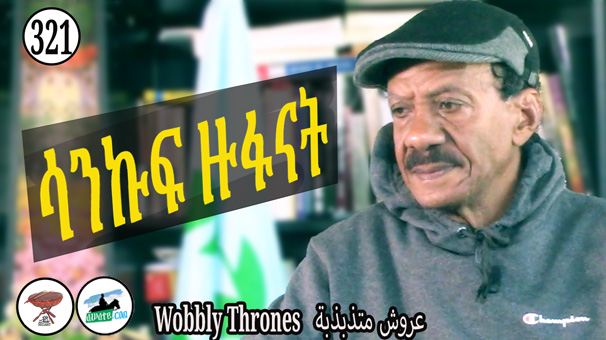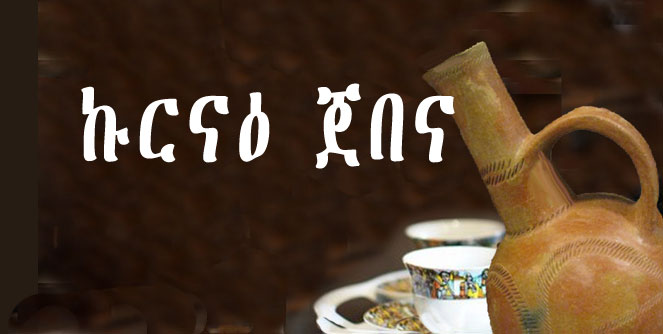Wobbly Thrones of Tyrants and Echoes of Empires

In ancient times, dynasties and empires were the norm. Blood was often shed to conquer enemies or warn challengers not to threaten the throne. That era of brute-force empires is gone—modern successors now rule through proxies. That’s why the demand for dictators and tyrants is at a record high. Motivated by greed, ego, and hollow pride, they thrive on brinkmanship. Meanwhile, the oppressed keep trying to dismantle these corrupt systems—usually in vain. And even when they succeed, things rarely improve. Just look at Iraq and Syria under the Baath Party and then look at Ethiopia and Eritrea and the rest of the region. The Baath party was an authoritarian, violent party. It lived by the sword and ended with the sword. Here’s a glimpse of the history from the formation of the Baath Party to the fall of Saddam Hussein.
The Baathist Throne
For many, there’s little difference between Arab nationalism, Baathism, and fanaticism (a label conveniently reserved for Muslims). As a result, jihadist, Baathist, and Arabist are often used interchangeably.
The Baath Party was founded in 1947 by Michel Aflaq, a Syrian born in 1910—somewhat like Abune Aregawi, a revered Syrian Antiochian monk who died in Axum in the 6th century.
A military coup in 1966 split the Baath Party into Syrian and Iraqi factions. In 1971, Hafiz al-Assad staged another coup and ruled Syria until his death in 2000, after which his son Bashar inherited power.
In Iraq, Ahmed Hassan al-Bakr had ruled since 1968. By 1979, he stepped down, making way for Saddam Hussein, who remained in power until 2003.
In that year, George Bush gave Saddam a 48-hour ultimatum to step down. Saddam refused, and the U.S., with its allies, invaded Iraq. Stabilizing the country proved harder than expected. The search for weapons of mass destruction came up empty—there were none. Saddam was eventually captured and hanged in 2006.
Paul Bremer, the American administrator, became Iraq’s chief authority. The Iraqi army disintegrated, creating a massive power vacuum. Former soldiers and civil servants turned to rebellion. Without security, civil strife erupted. Sectarian violence between Sunni and Shia engulfed the nation. Minorities like the Kurds suffered immensely. Al-Qaeda in Iraq emerged under Abu Musab al-Zarqawi. The once-thriving country descended into chaos and poverty.
Iraq was falsely linked to the 9/11 attacks and accused of hoarding WMDs—neither claim held up. The propaganda campaign leading up to the war played a big role in the devastation. Still, atrocities like the Halabja genocide and Baathist massacres gave moral grounds for toppling Saddam.
Fake Stories Made in Ethiopia
I’ve long warned about Ethiopia’s disinformation and threatening campaign aimed at Eritrea—spreading fake narratives and investing heavily in propaganda. This isn’t a trivial matter to be brushed off or handled emotionally—it needs a focused, strategic response.
Abiy Ahmed’s claims of Eritrean territory are reminiscent of Saddam’s invasion of Kuwait, where I lived when the Iraqi army invaded it.
A friend once met a senior Kuwaiti official and told him he was Eritrean. “What’s the issue between Eritrea and Ethiopia?” the official asked.
“We were federated states,” my friend replied, “but Ethiopia’s king dissolved the federation and annexed Eritrea as its 14th province. We’ve been fighting for independence ever since.”
The Kuwaiti official was stunned. “What? So Kuwait might end up like Eritrea and may fight for 30 years?!”
His shock was understandable. Saddam had just annexed Kuwait and declared it Iraq’s 19th province. Luckily for Kuwait, it had oil.
See the pattern?
I witnessed both Operation Desert Storm (1990) and Operation Shock and Awe (2003). And now, I believe Abiy’s regime seems to be guided by the Iraq War playbook.
In a few hours on an August morning in 1990, the Iraqi army incapacitated the Kuwaiti forces; the government escaped to Saudi Arabia to plan for the looming war. In a few months, Saddam was defeated.
In 2003, once Saddam left his palace and the army disbanded, the nation crumbled. Saddam was caught not long after, signaling the end of old Iraq. Millions perished, vast wealth was lost, and life became difficult.
Reactions to Negarit 320
The recent responses to Negarit 320 were telling—they showed that the Horn of Africa’s politics is still steered by aggression. Its leaders stubbornly remain on that destructive path.
Activism has its purpose—it shouldn’t be a lifelong occupation. Nor should nations accept dictatorship or oppression as fate. Beyond semantics, serious issues demand attention: governance failures, weak diplomacy, and lack of real national unity. These topics deserve thoughtful treatment. I’ll address them in upcoming episodes under the title Afe’rkebu (Emergency). Today’s piece serves as an introduction. The next installment will explore the outrage over calling “Kbur Brezidenti” merely Kebur Brezidenti. Why did I choose that wording? And what’s the big deal?
In brief: If I believe the PFDJ is indecent, I must keep my decency. If I believe it’s cruel, I will stay kind. If it is exclusionary, I will be inclusive. It promotes loyalty to party—I stand for loyalty to the nation. It prioritizes its own survival—I care about Eritrea and its people. If I believe its cadres are foul-mouthed—I avoid vulgarity. So, what exactly is the objection of some people?
In conclusion, remember the geopolitical situation has become more volatile. The Horn of Africa region is becoming more fragile. People must rise to the challenge. The political tectonic ground is shifting fast, and the old ways won’t cut it anymore. Eritrea is facing an aggressive, reckless threat from across the borders and an unrepentant oppressor from within. Instead of healing the wounds, the supposed leaders keep inflicting damage. But now, more than ever, Eritreans need peace and stability. The cycle of oppression has gone on far too long. Today, jailing people is not condemned—it’s accepted and normalized. That must change. Eritreans deserve freedom and dignity. Citizens should be assertive and demand justice and the end of oppression. Thirty-five years in the current situation is too long.
 Regional News
Regional News

Wobbly Thrones of Tyrants and Echoes of Empires
In ancient times, dynasties and empires were the norm. Blood was often shed to conquer enemies or warn challengers not to threaten the throne. That era of brute-force empires is gone—modern successors now rule through proxies. That’s why the demand for dictators and tyrants is at a record high. Motivated by greed, ego, and hollow pride, they thrive on brinkmanship. Meanwhile, the oppressed keep trying to dismantle these corrupt systems—usually in vain. And even when they succeed, things rarely improve. Just look at Iraq and Syria under the Baath Party and then look at Ethiopia and Eritrea and the rest of the region. The Baath party was an authoritarian, violent party. It lived by the sword and ended with the sword. Here’s a glimpse of the history from the formation of the Baath Party to the fall of Saddam Hussein.
The Baathist Throne
For many, there’s little difference between Arab nationalism, Baathism, and fanaticism (a label conveniently reserved for Muslims). As a result, jihadist, Baathist, and Arabist are often used interchangeably.
The Baath Party was founded in 1947 by Michel Aflaq, a Syrian born in 1910—somewhat like Abune Aregawi, a revered Syrian Antiochian monk who died in Axum in the 6th century.
A military coup in 1966 split the Baath Party into Syrian and Iraqi factions. In 1971, Hafiz al-Assad staged another coup and ruled Syria until his death in 2000, after which his son Bashar inherited power.
In Iraq, Ahmed Hassan al-Bakr had ruled since 1968. By 1979, he stepped down, making way for Saddam Hussein, who remained in power until 2003.
In that year, George Bush gave Saddam a 48-hour ultimatum to step down. Saddam refused, and the U.S., with its allies, invaded Iraq. Stabilizing the country proved harder than expected. The search for weapons of mass destruction came up empty—there were none. Saddam was eventually captured and hanged in 2006.
Paul Bremer, the American administrator, became Iraq’s chief authority. The Iraqi army disintegrated, creating a massive power vacuum. Former soldiers and civil servants turned to rebellion. Without security, civil strife erupted. Sectarian violence between Sunni and Shia engulfed the nation. Minorities like the Kurds suffered immensely. Al-Qaeda in Iraq emerged under Abu Musab al-Zarqawi. The once-thriving country descended into chaos and poverty.
Iraq was falsely linked to the 9/11 attacks and accused of hoarding WMDs—neither claim held up. The propaganda campaign leading up to the war played a big role in the devastation. Still, atrocities like the Halabja genocide and Baathist massacres gave moral grounds for toppling Saddam.
Fake Stories Made in Ethiopia
I’ve long warned about Ethiopia’s disinformation and threatening campaign aimed at Eritrea—spreading fake narratives and investing heavily in propaganda. This isn’t a trivial matter to be brushed off or handled emotionally—it needs a focused, strategic response.
Abiy Ahmed’s claims of Eritrean territory are reminiscent of Saddam’s invasion of Kuwait, where I lived when the Iraqi army invaded it.
A friend once met a senior Kuwaiti official and told him he was Eritrean. “What’s the issue between Eritrea and Ethiopia?” the official asked.
“We were federated states,” my friend replied, “but Ethiopia’s king dissolved the federation and annexed Eritrea as its 14th province. We’ve been fighting for independence ever since.”
The Kuwaiti official was stunned. “What? So Kuwait might end up like Eritrea and may fight for 30 years?!”
His shock was understandable. Saddam had just annexed Kuwait and declared it Iraq’s 19th province. Luckily for Kuwait, it had oil.
See the pattern?
I witnessed both Operation Desert Storm (1990) and Operation Shock and Awe (2003). And now, I believe Abiy’s regime seems to be guided by the Iraq War playbook.
In a few hours on an August morning in 1990, the Iraqi army incapacitated the Kuwaiti forces; the government escaped to Saudi Arabia to plan for the looming war. In a few months, Saddam was defeated.
In 2003, once Saddam left his palace and the army disbanded, the nation crumbled. Saddam was caught not long after, signaling the end of old Iraq. Millions perished, vast wealth was lost, and life became difficult.
Reactions to Negarit 320
The recent responses to Negarit 320 were telling—they showed that the Horn of Africa’s politics is still steered by aggression. Its leaders stubbornly remain on that destructive path.
Activism has its purpose—it shouldn’t be a lifelong occupation. Nor should nations accept dictatorship or oppression as fate. Beyond semantics, serious issues demand attention: governance failures, weak diplomacy, and lack of real national unity. These topics deserve thoughtful treatment. I’ll address them in upcoming episodes under the title Afe’rkebu (Emergency). Today’s piece serves as an introduction. The next installment will explore the outrage over calling “Kbur Brezidenti” merely Kebur Brezidenti. Why did I choose that wording? And what’s the big deal?
In brief: If I believe the PFDJ is indecent, I must keep my decency. If I believe it’s cruel, I will stay kind. If it is exclusionary, I will be inclusive. It promotes loyalty to party—I stand for loyalty to the nation. It prioritizes its own survival—I care about Eritrea and its people. If I believe its cadres are foul-mouthed—I avoid vulgarity. So, what exactly is the objection of some people?
In conclusion, remember the geopolitical situation has become more volatile. The Horn of Africa region is becoming more fragile. People must rise to the challenge. The political tectonic ground is shifting fast, and the old ways won’t cut it anymore. Eritrea is facing an aggressive, reckless threat from across the borders and an unrepentant oppressor from within. Instead of healing the wounds, the supposed leaders keep inflicting damage. But now, more than ever, Eritreans need peace and stability. The cycle of oppression has gone on far too long. Today, jailing people is not condemned—it’s accepted and normalized. That must change. Eritreans deserve freedom and dignity. Citizens should be assertive and demand justice and the end of oppression. Thirty-five years in the current situation is too long.